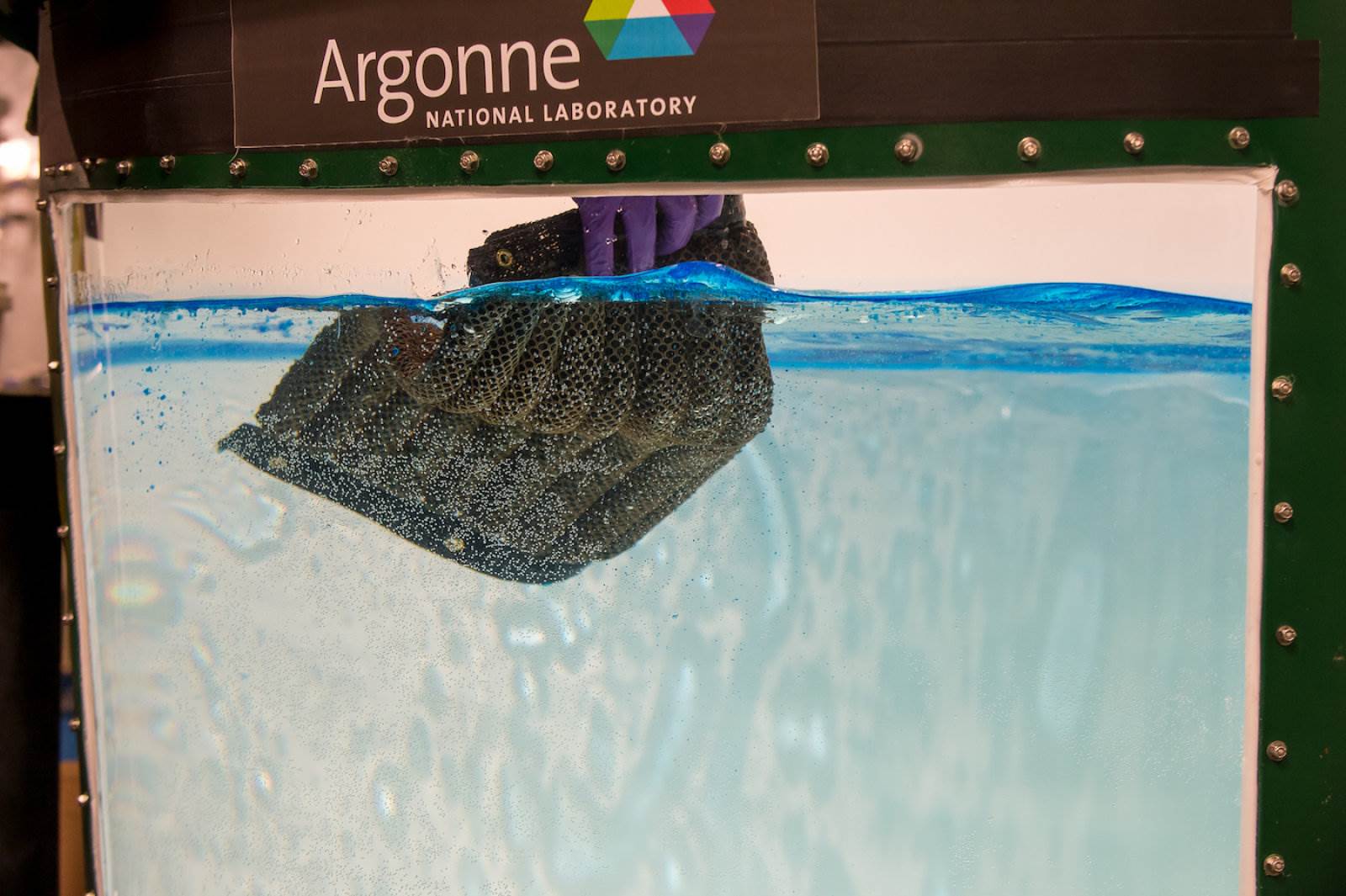Cleaning up after an oil spill isn’t an easy job. Just ask Exxon Mobil, or, for a more recent example, BP. Current clean-up methods include skimming it of a body off water’s surface or burning it. Neither are ideal for a few reasons, but beyond impacting the environment even further, they don’t account for the sludge that’s trapped below the waves. That’s where the Department of Energy’s Oleo Sponge comes in.
Unlike other clean-up methods, the Argonne National Laboratory says that the sponge can scrub the entire water column. What’s more, the sponge and the oil can be reused. Oleo Sponge builds on previous research from Argonne regarding how a complex structure can retain oil. In this case, it’s a cellulose sponge treated with “hard metal oxide atoms.”

“After some trial and error, [researchers] found a way to adapt the technique to grow an extremely thin layer of metal oxide ‘primer’ near the foam’s interior surfaces,” the statement reads. “This serves as the perfect glue for attaching oil-loving molecules, which are deposited in a second step; they hold onto the metal oxide layer with one end and reach out to grab oil molecules with the other.”
As you can see in the video below, the sponge looks incredibly effective. Even better? It can apparently be treated with different substances to attract pretty much anything you can think of.
[embedded content]







